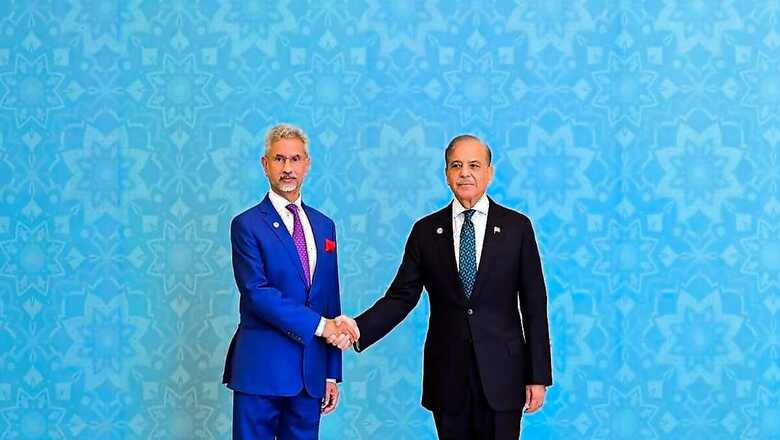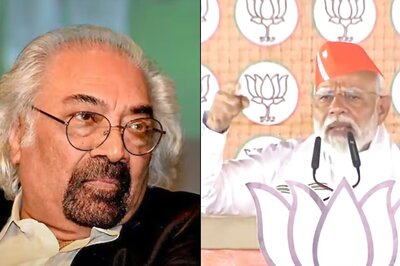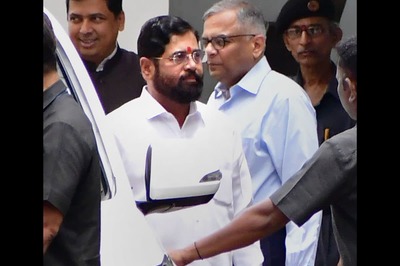
views
External Affairs Minister (EAM) Dr S. Jaishankar is currently in Pakistan, attending the 25th annual summit of the Shanghai Cooperation Organisation (SCO). Even though both New Delhi and Islamabad have officially confirmed that the Indian EAM’s visit is solely for the SCO meeting and will not have a bilateral component, it nevertheless marks a positive development, coming after a nine-year hiatus.
“I am going there (Pakistan) to be a good member of the SCO,” Dr Jaishankar stated at a recent Sardar Patel Lecture on Governance in Delhi, making it clear that his trip would not include bilateral talks with his Pakistani counterpart. While there are no bilateral talks on the agenda for this visit, New Delhi’s decision to send its EAM to the SCO summit in Pakistan has raised hopes that the two neighbours could resume bilateral dialogue in the foreseeable future.
Given the serious disagreements that have defined India-Pakistan relations ever since both countries became independent in 1947, to expect that ties between New Delhi and Islamabad could be normalised in a jiffy would certainly be overly optimistic. Yet, this eventuality remains well within the realms of possibility and speculative “what ifs”?
Accordingly, this visit will be watched closely both domestically and globally, with intense scrutiny both before and after. India-Pakistan ties, even at the best of times, have been plagued by mistrust, creating an environment that makes progress an excruciatingly difficult task. So, while the SCO meeting may seek ways to advance regional cooperation, the normalisation of India-Pakistan relations becomes a prerequisite for the success of this joint initiative. Accordingly, a delicate balancing act becomes essential.
Taking a principled stand that “talks and terror can’t go hand in hand,” New Delhi suspended dialogue with Islamabad after the 2019 Pulwama car bomb terrorist attack on a bus carrying CRPF personnel, which claimed the lives of 40 soldiers. India also responded decisively by carrying out a devastating air strike targeting the Jaish-e-Mohammad terrorist training camp in Balakot, located in Pakistan-occupied Kashmir (PoK).
Islamabad raised a global hue and cry over New Delhi’s decision to abrogate Article 370 of the Indian Constitution on August 5, 2019, as this move completely undermined Pakistan’s contrived narrative of Jammu and Kashmir being “disputed territory.” Its efforts to garner international support for compelling New Delhi to restore Article 370 turned out to be a damp squib. To save face and placate its public at home, Islamabad declared that it would not consider dialogue with New Delhi until the abrogation of Article 370 was revoked, which was a diplomatically immature decision.
On its part, India continues to maintain that as long as state-sponsored terrorism emanating from Pakistani soil does not end, any talks aimed at normalising relations would be futile. At the annual United Nations General Assembly session last month, Dr Jaishankar warned Pakistan once again that it must not support cross-border terrorism and should instead look inwards to resolve its debilitating economic crisis.
As a crucial and influential platform for expression, the Shanghai Cooperation Organisation (SCO) serves as a forum for regional security cooperation and economic collaboration. India has a longstanding connection with this regional initiative, having been an observer country for 12 years before becoming a permanent member in 2017. Last year, India held the SCO chairmanship and hosted the summit virtually in July 2023.
The SCO seeks to foster closer ties between its nine member states: China, Kyrgyzstan, India, Pakistan, Russia, Kazakhstan, Tajikistan, Uzbekistan, and Iran. Given the challenging regional and global dynamics currently at play, participation in SCO deliberations is vital for India to assert itself as a major player. With strained diplomatic relations between India and China due to border tensions created by Beijing, and Pakistan’s continuing support for terrorism in Jammu and Kashmir, this forum provides New Delhi with an opportunity to draw the attention of other member countries to these activities, which are prejudicial to the attainment of SCO objectives.
That nothing spectacular will emerge from the SCO summit is a known fact. However, India’s willingness to participate in this summit, despite it being held in Pakistan, while refusing to engage in bilateral discussions with the host country, clearly indicates that New Delhi is determined to protect its national interests while simultaneously ensuring it fulfills its regional obligations with full responsibility.
The author is Editor Brighter Kashmir, Author, TV commentator, political analyst and columnist. Views expressed in the above piece are personal and solely those of the author. They do not necessarily reflect News18’s views.



















Comments
0 comment